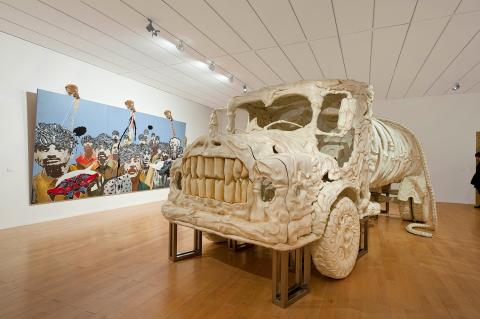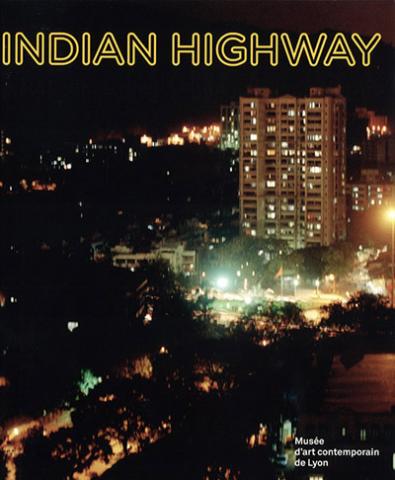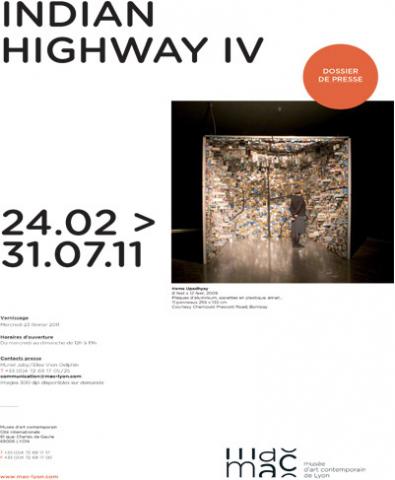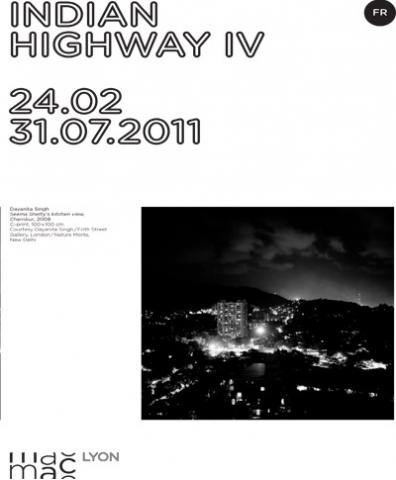
In the form of a road movie across 3 continents (Europe, South America, Asia), each stage along the Indian Highway is the occasion for a totally new episode. After London, Oslo and Herning, Lyon staged the fourth episode on 2000 m2, the exhibition presents a panorama of contemporary art in India and more than 30 artists.
Curators: Julia Peyton-Jones, Hans-Ulrich Obrist, Gunnar B. Kvaran, Thierry Raspail.
In partnership with Serpentine Gallery, London and Astrup Fearnley Museum of Modern Art, Oslo.
The title, Indian Highway, reflects the importance of migratory fluxes in the modern world, the impact of movements of thought and the importance of links between rural and urban communities. Some works refer to "information superhighways," others express current forms of engagement, often of a political nature, with regard to today’s fast-changing Indian society, with its issues of gender, subordination, religious sectarianism, clan mentalities and, of course, globalisation.
Artists : Ayisha Abraham, Ravi Agarwal, Sarnath Banerjee, Hemali Bhuta, Nikhil Chopra, Desire Machine Collective, Sheela Gowda, Sakshi Gupta, Shilpa Gupta, Subodh Gupta, N.S. Harsha, Abhishek Hazra, Shanay Jhaveri, Jitish Kallat, Amar Kanwar, Bharti Kher, Bose Krishnamachari, Nalini Malani, Jagannath Panda, Prajakta Potnis, Raqs Media Collective (avec Debkamal Ganguly, Ruchir Joshi, M. R. Rajan, Priya Sen, Surabhi Sharma (avec la collaboration de Gautam Singh), Kavita Pai / Hansa Thapliyal et Vipin Vijay pour Steps Away from Oblivion), Tejal Shah, Valay Shende, Sudarshan Shetty, Dayanita Singh, Sumakshi Singh, Studio Mumbai Architects & Michael Anastassiades, Kiran Subbaiah, Ashok Sukumaran & Shaina Anand, Thukral & Tagra, Hema Upadhyay.
More information
Originally conceived by Julia Peyton-Jones, Hans Ulrich Obrist and Gunnar B. Kvaran for the Serpentine Gallery (London) and Astrup (Oslo), this exhibition, which reflects the new global artistic economy, will go
through ten successive permutations, defined by 10 new curators. Thus each local incarnation of this permanent work in progress will be different, and Indian Highway will offer a complete image of itself only at the end of its tour – at the end of its multiple interpretations.
This new curatorial principle is a response to today’s flux, to its controversies, contrasting critical voices, varied forms of knowledge and ignorance, different perspectives and traditions, postcolonial attitudes and subaltern studies. It offers the only viable approach in this late modern period if we are to grasp the complexity of culture and the plasticity of art.
The conventional, generic, thematic and closed exhibition (irrespective of theme) is now obsolete – that is, if it is produced in the traditional, unilateral manner, from the authority of a single centre or institution, and sent out prefabricated, ready to circulate and be consumed.
In contrast, Indian Highway adopts a method that does its utmost to get away from the old-fashioned thinking that always assumed an "over there"; it seeks to avoid notions of "exoticism" and to mix and layer differing histories and movements of interpretation.
Catalogs

Catalogue Indian Highway
French / English
38 €
Buchhandlung Walter Konig, 2011
ISBN : 978-3-86560-946-9






















